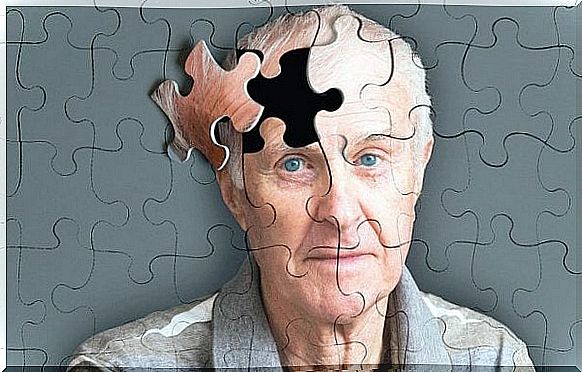5 Warning Signs Of Alzheimer’s Disease

Alzheimer’s disease is a type of dementia that occurs after the age of 60. Unfortunately, with current scientific resources, its progress cannot be stopped. In the beginning, the development of the disease is slow.
The disease begins at an early stage to affect the functioning of parts of the brain involved in brain, memory and language management. Gradually, Alzheimer’s people begin to experience memory problems, for example, in places, and eventually the disease causes such severe memory problems that they are not even able to identify their relatives. Then they become completely dependent on other people. Read and understand the 5 warning signs of developing Alzheimer’s disease. Early detection of the disease delays its development.
1. Warning signs of Alzheimer’s disease: daily chores become more difficult
It is normal that at times we are distracted, forget to pay bills or do our daily chores. In Alzheimer’s disease, however, memory problems worsen and sometimes they can even become dangerous.
For example, a person with Alzheimer’s may fail to realize the possibility of a fire on the stove. The cake can also be accidentally forgotten in the oven and cause destruction. Sometimes Alzheimer’s patients may forget how to prepare simple meals. They forget how dishes, napkins and cutlery should be arranged.
Gradually, Alzheimer’s disease imposes certain limitations that prevent a person from doing the smallest and simplest of everyday chores.

2. Communication problems become more prominent
At times, we all have problems with our communication. But if more problems start to occur in this daily event, it can become a problem. Communication problems can signal the onset of Alzheimer’s disease.
People with Alzheimer’s have difficulty finding the right words when they try to communicate with others. Sometimes they even have difficulty completing sentences and explaining what they mean. This happens when finding a replacement word seems impossible and you can’t catch the words hanging “on the tongue”. In other words, explaining the matter does not come.
Because of this, people with Alzheimer’s disease begin to experience more significant communication problems over time. Their vocabulary deteriorates and they forget the simple words they normally use on a daily basis, words without which it is difficult for them to express themselves in a consistent and comprehensible way.
3. Confusion in familiar places
One of the most important warning signs of Alzheimer’s is confusion. People suffering from confusion may suddenly get lost when they go to town or even in their own suburbs. Sometimes they also suffer from confusion in their own home.
Suddenly they don’t know where the toilet is or they don’t recognize their own house. Such situations cause severe stress and anxiety for the experiencer. These cases should be taken into account, however short they may be, as they can signal Alzheimer’s disease.
With age, we all experience mild cognitive impairment, which makes us forget things like doctor appointments or things in our house. However, it is important to emphasize that mild cognitive impairment is not always a message for developing Alzheimer’s disease.

4. Difficulties in abstract thinking
Difficulties in abstract thinking can also signal Alzheimer’s disease. For example, our grandparents can forget about a bath in the middle of a child. Temporary uncontrollability is normal, but people with Alzheimer’s disease completely forget their duty. In addition, they also have difficulty remembering events afterwards.
This also happens when looking for things. People with Alzheimer’s disease often lose objects and place them in the wrong places, for example, sugar can be found in the oven or refrigerator. When they then look for something in a particular place, they can’t find it and forget where the stuff really is put. They are also prone to forget what they were doing. For example, when cleaning, they may go looking for a vacuum cleaner, but eventually forget to clean and start doing something completely different.
5. Sudden mood swings
People with Alzheimer’s disease are very prone to sudden mood swings for no apparent reason. They may suddenly start crying, even if they have been completely calm a moment earlier, or they will move from happiness to anger very suddenly. However, one change rises above the others and clearly communicates Alzheimer’s disease: a decrease in initiative. In addition to forgetfulness, confusion, and mood swings, Alzheimer’s patients are easily tired of doing things and are very passive in performing tasks.
If we notice these signs in the early stages of the disease, this makes the treatment more effective and delays the onset of more severe symptoms of the disease. This allows the patient to maintain their independence for longer and the quality of life does not deteriorate as quickly.
These are clear warning signs that we can take into account when we suspect possible dementia. It is important to emphasize that at the beginning, the symptoms can be very subtle and can be classified as ordinary things that happen to everyone and are not usually taken into account. Over time, however, the symptoms become clearer and become more part of everyday life.









